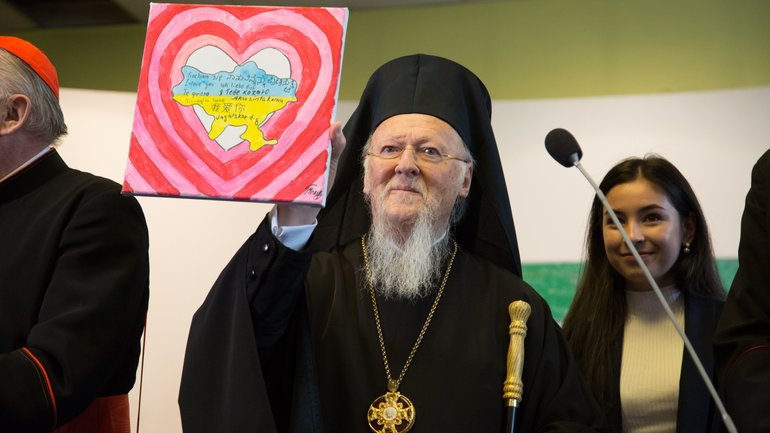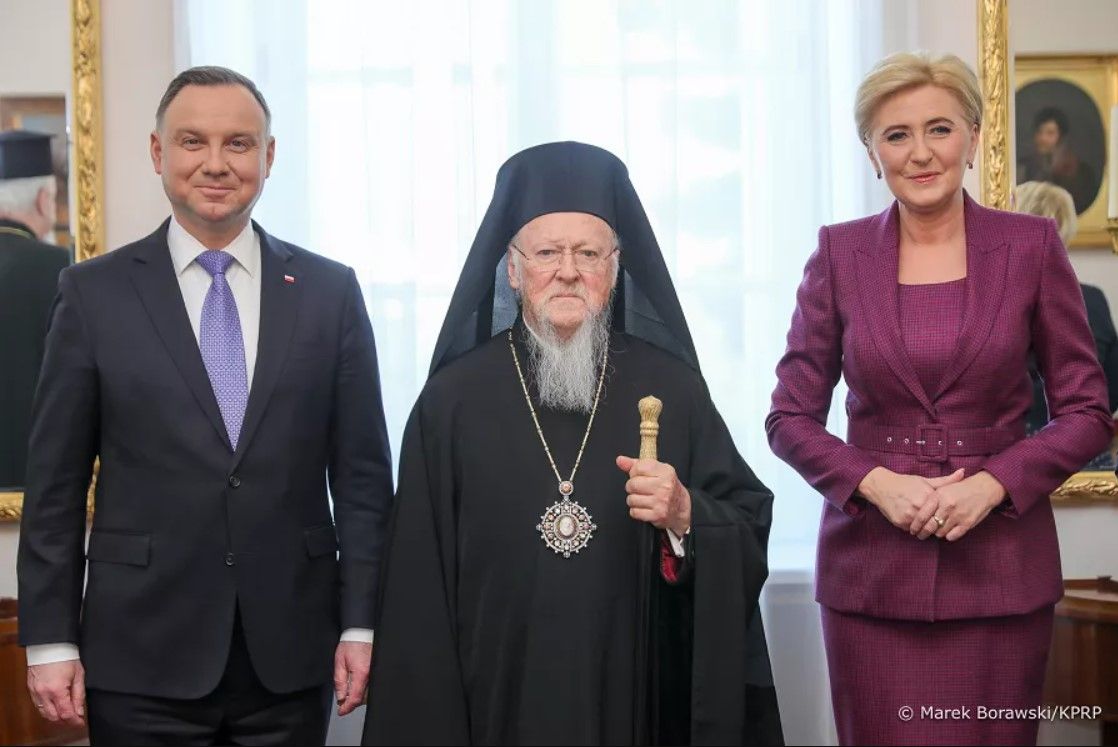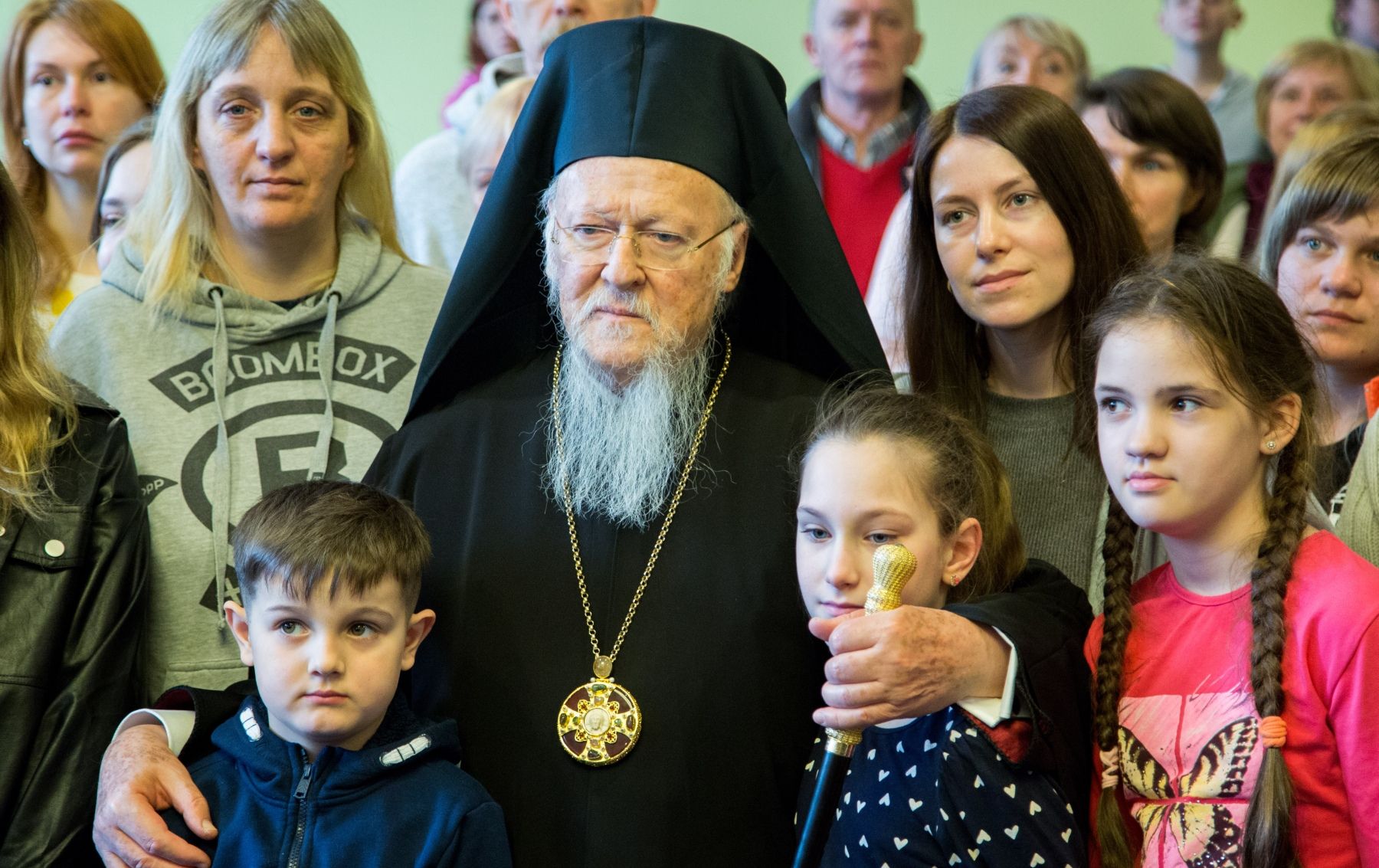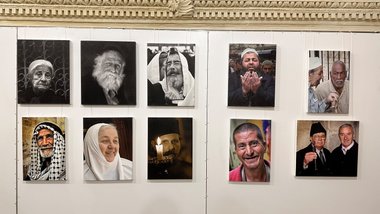Patriarch Bartholomew in Poland: Orthodoxy as a demilitarised zone

The war tragedy in Ukraine is also becoming a reason to redefine interfaith dialogue within its real social boundaries. The Patriarch's meeting with Roman Catholic hierarchs is a harbinger of creating an alternative to the lack of expected resonance after signing a declaration on reconciliation with Patriarch Kirill of Moscow in 2012. Furthermore, patriarch Bartholomew's public silence on the lack of support of the Warsaw Orthodox Metropolis for the autocephaly in Ukraine and his prayer over the grave of the pre-war head of the Polish Orthodox Church persecuted by the Communists are particularly meaningful.
Firstly, to console the suffering
Patriarch Bartholomew's moving meetings with innocent Ukrainian victims of the war who found shelter in Poland will be long remembered. Although with his attitude, the Patriarch testified that Christianity is sensitive to human harm, while deprived of this fundamental ground of its existence, it easily becomes prey to political ideologies that justify violence with metaphysical reasons. The Patriarch's attitude to human suffering can be seen as an expression of the Christian message of peace as a gift from God "who comforts us in all our troubles, so that we can comfort those in any trouble with the comfort we ourselves have received from God" (2 Cor 1:4). In this regard, Christian charity transcends the common definition of humanitarianism, as an act of synergy between the Creator and creature. "During my stay here," said the honorary primate of the Orthodox Church, "I realised with all intensity that sometimes there is only room for tears. Sometimes the only appropriate response is silence. Sometimes we can only share the power of touch, consolation, being next to someone".

The courageous attitude of the Patriarch of Constantinople is a substantive counterweight to the entanglement of the Moscow Patriarchate in a pernicious and un-Christian policy. On 27 March, Patriarch Kirill released a congratulatory letter on the occasion of the Day of the Russian National Guard conducting war activities in Ukraine.
President Andrzej Duda's distinguished guest also expressed his sincere and repeated appreciation for the attitude of the Poles, who selflessly extend a helping hand to their sisters and brothers from Ukraine, which is involved in bloody hostilities.
Patriarch Bartholomew of Constantinople is an archbishop of the former capital of the Eastern Roman Empire, known since the time of Constantine the Great as 'New Rome' - the most important centre of Christianity in the Greek tradition. Ten of his predecessors were murdered at the hands of the Turks for reasons of support for Greek independence. In the Republic of Turkey, the "Roman Patriarchate" has been stripped of all rights; nevertheless, Bartholomew enjoys great authority throughout the world.
Redefining interfaith dialogue
The meeting of Patriarch Bartholomew with Cardinal Kazimierz Nycz and the representatives of the Roman Catholic Bishops' Conference of Poland indicated that the war reality in Ukraine demands a redefinition of interfaith relations in a strictly social context. Dialogue based on the current formula seems to perpetuate theological stereotypes, does not foster authentic attitudes of tolerance for doctrinal differences and insufficiently integrates individual religious groups in common social projects.
So far, the Roman Catholic Bishops' Conference has tried to give a religious dimension to attempts at Polish-Russian reconciliation, in 2016 signing a joint declaration with Patriarch Kirill on the protection of fundamental values. In the face of the war, the Russian party to the agreement has lost all credibility in this field. A new chapter representing the eastern neighbours is to fall to the Autocephalous Orthodox Church of Ukraine, established by Constantinople three years ago. It remains controversial that the Orthodox Metropolis of Warsaw retains loyalty to the Moscow Patriarchate in this relationship, which poses an additional difficulty in giving the plans the expected course. The Bishops' Conference is aware that the definition of effective interfaith dialogue should be broad enough to go beyond historical semantics and encompass all new circumstances.
The Russian war against Ukraine has highlighted the effects of the lack of decommunisation of churches and religious associations, which deepens the crisis of authority of these institutions. In the countries of the Communist bloc, the ecumenical movement was closely monitored by the secret services. The result of these actions was the shallowing of the identity of religious communities. The communist authorities controlled the activity of the Polish Ecumenical Council, established in 1946, which brought together the Orthodox, Protestants and Old Catholics. A 1980 report by the Polish Ministry of Internal Affairs estimated that 75% of the staff of the Christian Theological Academy in Warsaw, a university established by these religious circles, were under the operational control of the Secret Service. Orthodox clergymen from these circles, recruited for cooperation, were aimed to " shape appropriate attitudes towards the state authorities among believers of Ukrainian nationality". Without coming to terms with the difficult communist future, these churches have no moral mandate to shape the consciences of young generations of believers. This situation should serve as a warning for similar problems in the religious policy of Ukraine, where a debate is underway over the legal status of the Moscow Patriarchate, which operates on its territory - a draft resolution to ban it has been submitted to the Parliament.
According to statistics of 2021, only 22% of Orthodox Ukrainians declared belonging to structures dependent on the Moscow Patriarchate, while 40% identified themselves as believers of the Autocephalous Church of Ukraine; in the eastern part of the country, which has been affected by numerous military operations, 26% declared belonging to the former, while 32% to the latter. Nevertheless, the phenomenon remains that 36% of Orthodox Ukrainians are not affiliated.
The Polish state authorities support the independence of Orthodoxy in Ukraine
The visit of Patriarch Bartholomew, apart from providing due spiritual support to war refugees of the Orthodox faith, was of high importance from the perspective of regional security: in the context of encouraging the process of making the religious situation in Ukraine independent from the policy of the Russian Federation. The Polish authorities favour a full regulation of relations between the Ukrainian and Polish autocephalies, as Polish diplomacy supported the autocephaly granted by the Patriarchate of Constantinople to Warsaw in 1924 and proclaimed a year later. The commendable involvement of Poland's head of state, President Andrzej Duda, in helping Ukraine, which is covered by military action, gives him a moral mandate to formulate expectations in this area, in line with the Polish raison d'état.
Patriarch Bartholomew's public silence on the lack of support for the Ukrainian autocephaly and the patriarchal prayer over the grave of the communist-persecuted pre-war head of the Polish Orthodox Church Dionysius Valedynsky (until he died in 1961, the Greek Orthodox Churches did not maintain liturgical relations with Warsaw), are very telling. However, according to semi-official sources, the Orthodox Church of Poland will not refuse to serve the Eucharist to Ukrainian war refugees who belong to the Autocephalous Church. That is an extremely important step towards a full canonical regulation between both churches.
Commentators point out that perhaps Metropolitan Sava is pursuing a policy of contradictory gestures because he fears the creation of Moscow Patriarchate structures on his territory: this would be a problem analogous to the situation in Africa, where Moscow violated the ancient borders of the Patriarchate of Alexandria by creating a schismatic exarchate. Despite the existence of a pro-Moscow option among the Orthodox of Poland, this scenario turns out to be unrealistic due to the legal instruments protecting the interests of the state and the Orthodox Church. However, such a situation occurred temporarily in the 1940s in the Bialystok region, when, at the request of the local clergy, a part of the Polish territory was annexed to the Moscow Patriarchate.
It is also worth noting that an reaction of the Russian Federation to the insubordination of the Orthodox hierarchs from the former communist bloc countries is to disclose the compromising materials in the form of the KBG agent files and moral scandals: such a situation is currently taking place in Georgia. This type of action is intended to warn against the consequences of the disloyalty of other clergy who find themselves in the Kremlin's sphere of influence, often financially dependent. The insufficient reaction of certain circles of the Orthodox Church in defining the Russian Federation as a war aggressor may be a test of this type of dependence.

The author is the head of the Prognostic Research Centre on Religious Change and deputy director of the Institute of Philosophy at the University of Wroclaw, Poland; he cooperates with the Centre for Doctrine and Training of the Polish Armed Forces.










